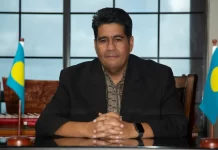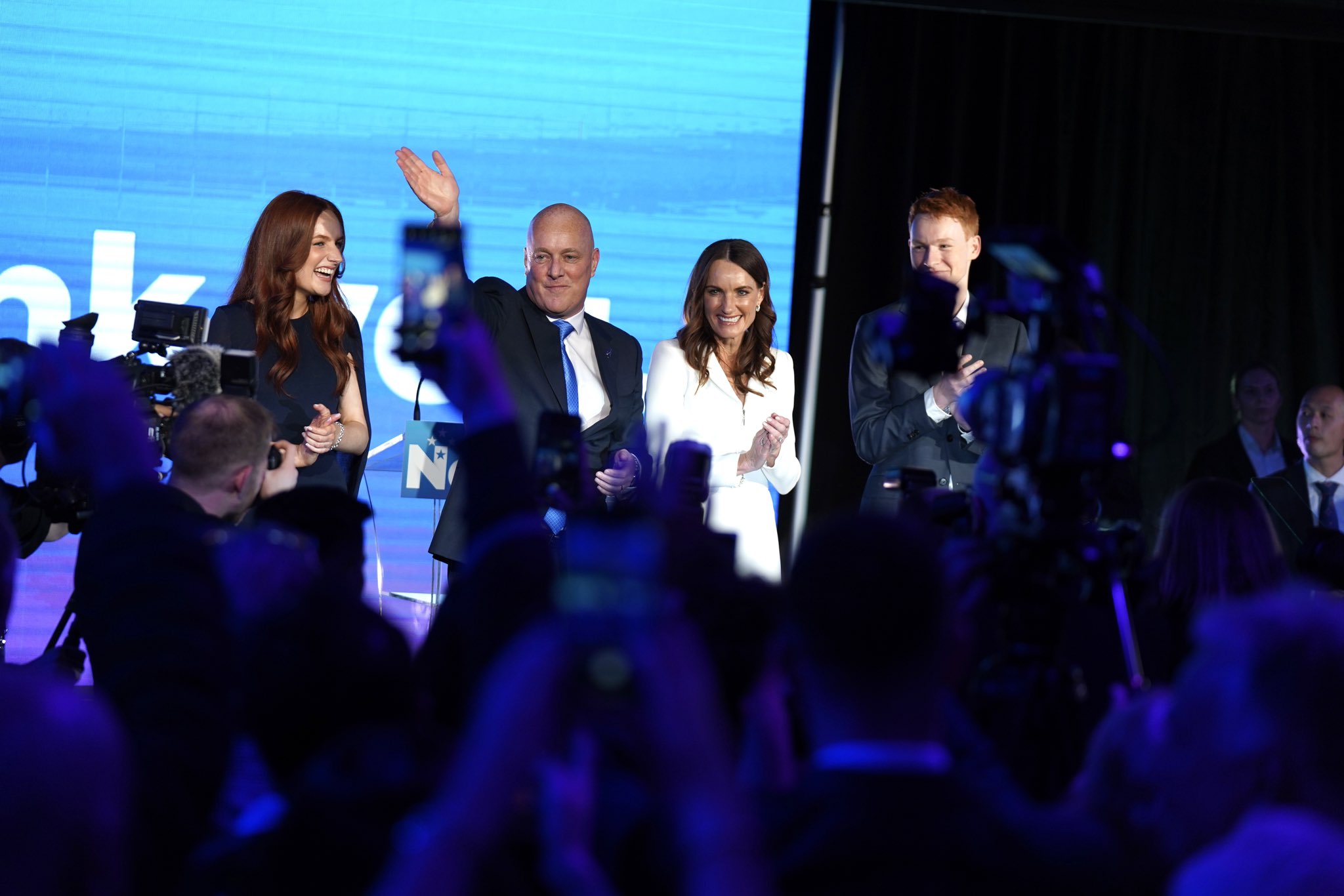Christopher Luxon said it was a “tremendous privilege” to wake up on Sunday as New Zealand’s incoming prime minister as he eyed talks to form a new coalition government.
Voters ended the six-year reign of the centre-left Labour government on Saturday as Luxon’s conservative National Party won enough seats to govern in a coalition with liberal party ACT.
Labour leader Chris Hipkins, who replaced Jacinda Ardern as prime minister in January, conceded defeat after his party lost nearly half their seats from the previous election in 2020.
Luxon fronted the media on Sunday wearing an All Blacks jersey after watching coverage of New Zealand’s victory over Ireland at the Rugby World Cup in France, which kicked off at 8am local time.
“It’s a great start to the day when you’ve got a National government, and you’ve got the All Blacks winning again,” he told reporters.
Luxon, who prides himself on needing only a few hours of sleep each night, said he celebrated with family and supporters, then analysed the election results “until 0330” before an early sporting start.
The 53-year-old former airline executive, who entered politics in 2019, can only take over as prime minister after the final election results are declared on 03 November.
“It’s a tremendous privilege,” he replied when asked about being the incoming premier.
“I came to politics with a view of making a contribution to New Zealand, unhappy that we weren’t realising our potential.
“That’s why I feel very optimistic about our path going forward.”
He said he planned a strategy meeting on Sunday, ahead of coalition talks.
“We are going to deliver a strong and stable government that is going to get things done,” Loon told a press conference in Auckland a day after Saturday’s election.
He said he had spoken to the leader of the conservative ACT New Zealand party, David Seymour, twice on Saturday and believed the two parties would work constructively.
National won 50 seats and ACT 11, securing a majority of just one seat in the 121-seat Parliament, according to provisional results from the Electoral Commission.
While the election produced a notable swing from left to right, Bryce Edwards, a research fellow at the School of Government at Victoria University of Wellington, said he did not expect a radical right-wing government in any significant sense.
“It’s just so opaque at the moment,” he said. National “will be coalescing with the ACT party and also with New Zealand First, and we just don’t know yet what dynamic that’s going to bring”.
While National and ACT have the numbers to form a government on the current count, roughly 567,000 special votes – around 20 per cent of the total – must still be counted. The official result is due on 03 November, and right-wing parties have historically lost at least a seat with the final count.
In their first 100 days, National has promised changes such as a ban on cellphones in schools, a crackdown on crime and the scrapping of planned fuel tax hikes.
With New Zealand in a cost-of-living crisis and crime figures rising, Luxon admitted having “some tough decisions” to face.
“When you do a turn-around, you’ve got to call the brutal facts of your reality, put a plan together and get yourself to a better place,” added the former businessman.
National cleaned up at the polls, but some big-name casualties fell in Labour’s defeat.
Foreign Affairs Minister Nanaia Mahuta, 53, lost her Hauraki-Waikato seat to 21-year-old Hana-Rawhiti Maipi-Clarke of Te Pati Maori, who will become New Zealand’s youngest MP in 170 years.
Michael Wood, who resigned as transport minister in June after failing to declare shares in Auckland airport, was also ousted after losing his Mt Roskill seat to National candidate, Carlos Cheung.
SOURCE: AFP/PACNEWS














